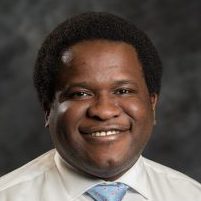
After extensive research on published materials from Al Qaeda, ISIS, the Ku Klux Klan and other terrorists organizations, Dr. Etudo was able to distinguished word sequences, negative tones, and other clues common in manifestos of terror groups and lone wolves who commit acts of terror. “Almost all lone wolves leave a memoir,” Dr. Etudo says. “They like to broadcast their intent.”
His software can explore domains that don’t have a formal web address. “It can consume massive amounts of information requiring far too much human effort, ” Dr. Etudo says. One limitation is that the program only analyzes web content in English.
“Recent events underscore the need for us to gather as much intelligence as we can on the make-up of these radical ideologies,” Dr. Etudo says. “Such intelligence is particularly useful for identifying emerging targets and the rationale of terrorist violence.”
Dr. Etudo is a 2010 graduate of the University of Richmond, where he majored in economics. He holds a master’s degree and a Ph.D. in information systems from Virginia Commonwealth University.

